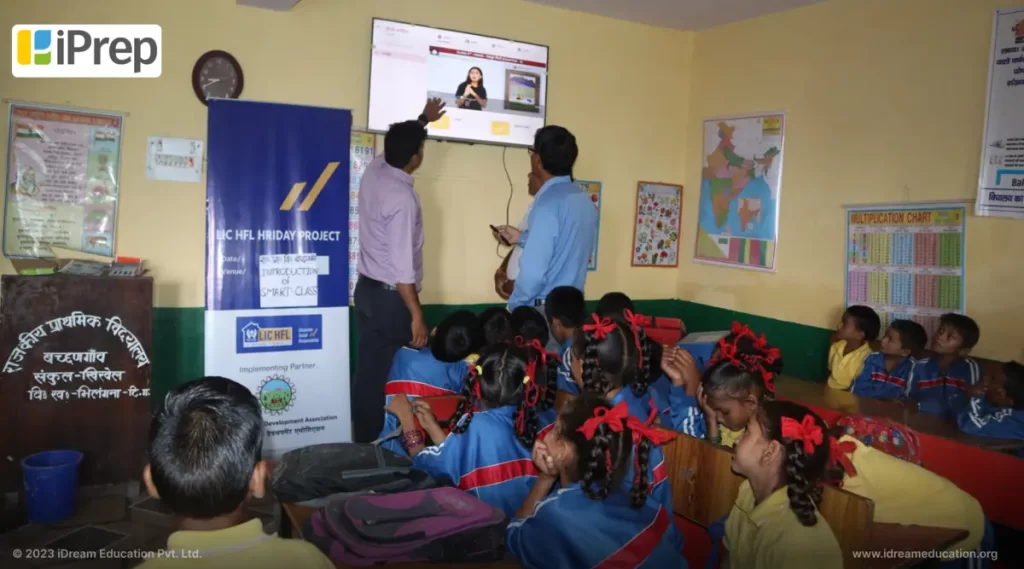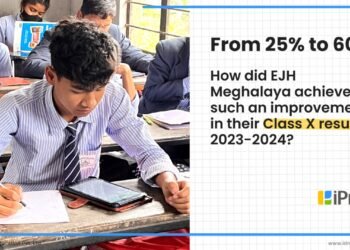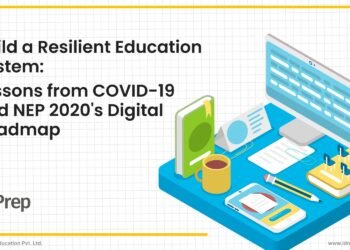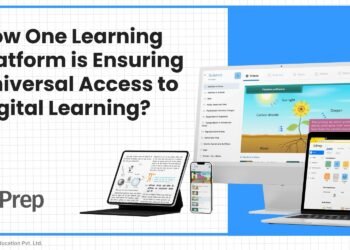NIPUN Bharat by GoI prioritizes Early Childhood Education (ECE) to boost foundational literacy and numeracy.
Education of children aged 3-6 is known as Early Childhood Learning (ECE). Multiple researches and government initiatives emphasize that investing in early childhood leads to greater returns since it is a key building block for a child’s overall learning and development. NIPUN Bharat by the Ministry of Education, GoI is one such initiative focused on Early Childhood Learning (ECE), with a vision to enable an environment to ensure the universal acquisition of Foundational Literacy and Numeracy. The vision behind NIPUN Bharat emphasizes that missing out on learning during these formative years would have far-reaching consequences.
Let us hear from Prime Minister Shri Narendra Modi at the G20 Education Ministers’ Meet held in Pune.
In a Video message, Modi Ji emphasized the significance of foundational literacy forms a strong base for youth development. He stated that “India has also started combining this with technology” and started the ‘National Initiative for Proficiency in Reading with Understanding and Numeracy’ or NIPUN Bharat Initiative by Government.
“The role of education has been key to bringing Joy.”
-Prime Minister Shri Narendra Modi Ji
Situation Affecting the Early Years of Learning in India
- Limited Enrollment
At the Pre-primary level, enrolment reduced from 1.1 crore in FY21 to 1.0 crore in FY22. Various factors contributing to this situation are conventional norms, lack of awareness, and accessibility.
- Shortfalls in the Style of Foundational Education
National Achievement Survey (NAS) 2021 highlights the national average percentage of students for class third was 59%, which declined by 10% to 49% in class fifth. It further declined to 41.9% in class eight and then 37.8% in class 10. This highlights inefficiency in the use of teaching and learning resources that could be unavailability culturally responsive and delivered in children’s familiar or mother tongue as mentioned in the NIPUN Bharat Report 2021.
- Language Medium
Children are most comfortable with their mother tongue at an early age. Therefore, in the classroom, children bring their home language, where it becomes important to make this their strength rather than viewing it as an obstacle. However, the lack of availability of learning content in children’s home languages becomes a barrier to their fundamental learning.
Acknowledging these situations is important to overcome them!
In alignment with NIPUN Bharat’s vision to create an enabling environment to ensure the universal acquisition of Foundational Literacy and Numeracy (FLN) during Early Childhood Education, key focus areas can be:
- Active Engagement of Teachers, Parents, NGOs, and Corporates:
The collaborative effort of teachers, parents, NGOs, and corporates will help establish a solid foundation for lifelong learning. One of the ways is the integration of technology by corporates and NGOs for primary schools and Anganwadi centers. This can enable an engaging and enjoyable learning environment where students have access to diverse learning content, and teachers have interactive ways of engaging. A notable example is the implementation of smart classes by iDream Education in 10 MCD Primary Schools in Delhi in collaboration with the Rotary Club of Delhi. Watch students engage in the delightful process of learning and practicing poems together through recitation, creating an atmosphere of joy and growth.
Together, it is possible to enable a joyful learning environment in primary schools and help the government enable access and enrollment in ECE.
- Enabling Culturally responsive teaching learning material in mother language(s)
The National Education Policy 2020 places significant emphasis on utilizing the mother tongue or local language as the primary medium of instruction up to Class 5, with a recommendation for its continuation until Class 8 and beyond. Creating a familiar learning environment is crucial for captivating students and fostering their engagement in learning right from the start. It is, therefore, imperative to provide curriculum-aligned learning content in languages that students are familiar with. iDream Education aligns with the National Education Policy’s initiative and actively facilitates learning content aligned with the curriculum of 21 state boards, available in eight regional languages. With NGOs, Government, Corporate, and Hardware partners, iDream Education aspires to establish a strong educational foundation for students from an early age.
- Reporting and Analytics
Monitoring every student’s learning progress in early childhood education (ECE) is crucial for establishing a solid foundation for Foundational Literacy and Numeracy Skills. However, manually keeping track of each student’s progress can be a challenge for teachers. Therefore, it becomes essential to have a reporting dashboard that can efficiently document and record the learning data of individual students. Here comes the need for a learning platform that delivers curriculum-aligned digital learning for classes 1st to 12th, all subjects in English, Hindi, and other language mediums, with continuous monitoring and reporting to track each student’s learning data.
Changing Lives at Anganwadi Centers and Primary Government Schools to Achieve NIPUN Bharat Goals
iDream Education has been dedicated to enabling an interactive and engaging learning environment for students between the ages of 3 to 6. By partnering with organizations prioritizing Early Childhood Education, such as the Rotary Club of Delhi, M3M Foundation, and Mount Valley Development Association, iDream Education has integrated tablet-based smart ICT Labs and smart classes into Primary schools and Anganwadi centers. Through this, many students have access to enjoyable and valuable learning content, including animated lessons, syllabus books, practice, book library with poems, stories, and life skills, all designed to make ECE joyful and meaningful for students. Moreover, the availability of culturally responsive teaching learning material in children’s familiar/home/mother language(s) makes it easier for teachers to engage students in learning.

Thus, prioritizing access, enrollment, and availability of curriculum content in the mother tongue, and with regular monitoring, will enable strong linkage and smooth transition between the preschool stage and Grade I, making learning holistic, integrated, inclusive, enjoyable, and engaging.
If in case you would like to know more about digital learning solutions of iDream Education, visit their website, www.idreameducation.org or write to them at share@idreameducation.org
Copyright@IndiaCSR
Also Read
- Personalised Learning Journey of Shreya Namdev, a Class 10th Student
- Promoting Language Diversity: Harnessing the Richness of Teaching and Learning in Hindi
- Enhancing Teaching through Smart Class Integration in a Govt School in Palamu, Jharkhand – A Case Study
- 5000+ students in Meghalaya empowered with iPrep Digital Learning. Meghalaya’s Education Minister credits the District Administration in East Jaintia Hill
- How Digital Education Can Solve the 5 Biggest Educational Challenges that India is Facing?






















